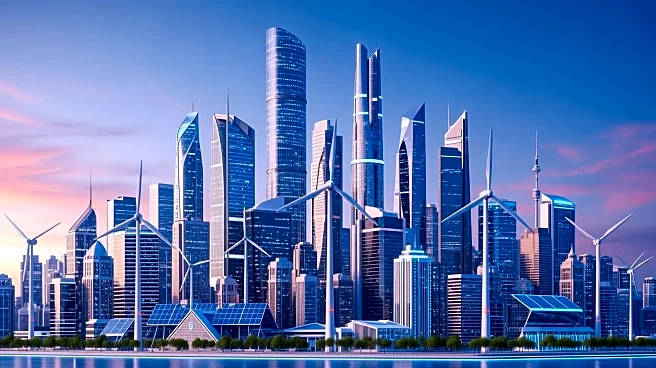What's Happening?
The global clean energy transition is gaining momentum, with renewables overtaking coal as the top source of global electricity for the first time in 2025. This shift is driven by the decreasing costs
and increased accessibility of wind, solar, and battery technologies. The International Energy Agency projects that global renewable power capacity will double over the next five years, adding 4,600 gigawatts, equivalent to the combined power capacity of China, the EU, and Japan. Despite this progress, experts caution that more efforts are needed to replace fossil fuels, as energy demand continues to rise.
Why It's Important?
The transition to renewable energy is crucial for reducing global emissions and combating climate change. As the energy sector is the largest source of emissions, the shift to clean electricity is essential for decarbonizing other industries, such as transportation. The rapid growth of renewables presents economic opportunities, as they become cheaper and more competitive than fossil fuels. This transition is also significant for energy security, as countries seek to diversify their energy sources and reduce reliance on fossil fuels.
What's Next?
The continued expansion of renewable energy capacity is expected to drive further reductions in emissions and enhance energy security. Countries are likely to increase investments in clean energy infrastructure and technologies, supported by favorable policies and economic incentives. The focus on sustainability may lead to innovations in energy storage and grid management, enabling more efficient integration of renewables. Stakeholders, including governments and businesses, will need to address challenges related to energy demand and infrastructure development.
Beyond the Headlines
The global shift towards renewables reflects broader environmental and economic trends, as countries prioritize sustainability and energy independence. The transition poses challenges for traditional energy industries, which may face regulatory pressures and market shifts. The emphasis on clean energy also highlights ethical considerations, as stakeholders balance economic growth with environmental responsibility. The evolving energy landscape may lead to long-term changes in industry practices and consumer behavior, promoting a more sustainable future.











